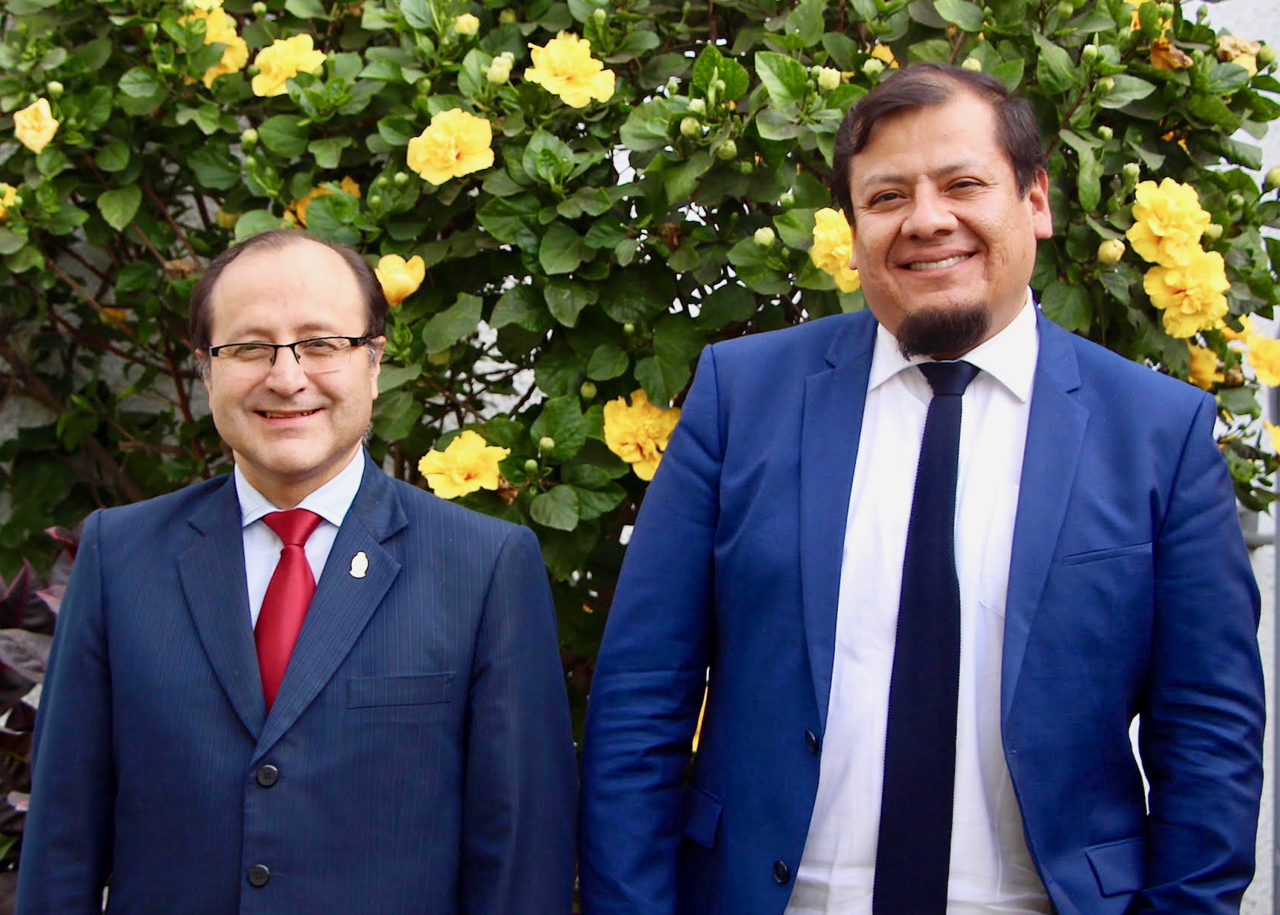Landmark asset recovery case puts Peruvian non-conviction-based confiscation legislation to the test

A high-profile asset recovery case in Peru is putting the country’s new legislation on non-conviction-based confiscation (Extinción de Dominio) to the test.
The new Extinción de Dominio legislation, which roughly translates as "extinction of possession", allows stolen assets to be recovered even if the asset holder cannot formally be convicted of a crime. Introduced in August 2018, it enables the recovery of assets from foreign bank accounts whose owners, for example, are now dead or have absconded.
The first ever case to make use of this legislation relates to a bank account in Luxembourg containing laundered money that a deceased General of the Peruvian Navy, Américo Ibárcena, acquired corruptly from the Peruvian state. The crimes took place under the notoriously corrupt rule of former President Alberto Fujimori and his intelligence chief Vladimiro Montesinos.
The Peruvian courts have declared that the money belongs to Peru and should be returned by Luxembourg in line with precedents from cases involving the UK and Switzerland and with commitments under international treaties on asset recovery.
Insights from the prosecutor
Dr. Hamilton Castro, Provincial Prosecutor in the Attorney General’s Office of Peru, has been investigating this case – along with related cases in Switzerland and Luxembourg – and understands deeply both the significance of this judgement and the challenges of now executing it in Luxembourg.
In this interview with Oscar Solórzano, Manager of the Basel Institute’s regional office in Peru, Dr. Castro reflects on this important milestone for Peruvian justice and on the support provided by the Basel Institute through its International Centre for Asset Recovery (ICAR).
Dr. Hamilton, tell us why the decision in the Ibárcena case is important for Peru
I believe for two reasons. First, because recovering these assets is a matter of justice for the people of Peru – and one that is long overdue. The account belongs to a set of bank accounts that served to conceal the illicit profits of secret contracts that defrauded the Peruvian public treasury during the administration of former President Fujimori. This asset recovery case, along with others in recent years, contains an implicit message to criminals: justice may take time, but it does not forget.
Secondly, this decision is important because it is the first judgement resulting from the new legislation that came into force in February of this year. Extinción de Dominio is an effective tool to recover assets in situations such as this case, where the owners and beneficiaries of the accounts are fugitives from justice in Peru or have died.
Having said this, we are aware that we still have a way to go to obtain the execution of the decision in Luxembourg. We are prepared to support our request with legal arguments demonstrating that the process has been carried out in line with the highest legal standards and procedural guarantees.
What is innovative about the Extinción de Dominio legislation and how did this help in the investigation?
In my opinion, the main innovation of the Extinción de Dominio in Peru, compared to the previous Perdida de Dominio (loss of possession), is that an asset recovery investigation can now be opened independently and without the need for a criminal conviction. In some cases, stolen assets can be recovered without a criminal investigation being opened at all. Its independent character allows a legal action to be launched against the assets themselves while at the same time fully respecting fundamental rights and due process.
In this specific case, the Extinción de Dominio legislation allowed the asset recovery process to begin even though the account holder was outside the country. The case was duly notified and, in view of the account holder’s refusal to participate in the process, a defence lawyer was appointed to protect his rights.
As this is an action directed against the asset, however, civil law concepts are largely applied to facilitate the collection of evidence and speed up the process.
What are the challenges of applying the Extinción de Dominio legislation in Peru?
In my opinion, an important question relates to the competences of the criminal justice apparatus to apply legislation that – although it has been applied for decades in certain other countries in our region – is new to Peru.
It is crucial for our specialised judges and prosecutors to fully understand how to apply the novel features of this legislation in order to obtain positive results. Training is therefore essential to enable Peruvian prosecutors to conduct proper and efficient asset recovery cases using this legislation, both at the investigation stage and during the subsequent judicial phase.
So, capacity building is one major challenge. We hope that the Basel Institute will continue to support the work of the Attorney General's Office and the Judiciary in this vital aspect of our asset recovery efforts.
On your last point, how would you describe your office's relationship with the Basel Institute?
The relationship between my office and the Basel Institute is superlative and has been so for quite a long time.
First, in the recovery of assets from bank accounts in Switzerland linked to this same complex of cases, and subsequently when I was the head of the “special team” tasked with investigating the Odebrecht case (also known as Operation Car Wash or Lava Jato) in its initial phase in Peru. We established a fruitful relationship that revolved from the very beginning around advice, help and assistance in international judicial cooperation.
This relationship grew to include a crucial focus on the recovery of assets related to acts of corruption in the Peruvian government. This has allowed my office to recover approximately USD 35 million – so far – in funds that were stashed in foreign accounts and linked to serious acts of state corruption in Peru.
We think that this recent judgement related to the account in Luxembourg is a clear example of the excellent relationship between the Prosecutor's Office for Extinción de Dominio and the Basel Institute. Why? Because this application of the Extinción de Dominio benefited greatly from advice and assistance provided by the Basel Institute.
What are your expectations for your future partnership with the Basel Institute?
Our expectations are intimately linked to our need for this close and valuable cooperation between the Peruvian Attorney General’s Office and the Basel Institute to continue developing.
This will allow us to continue recovering illegally obtained assets in the many cases that are currently pending and still to come.
About the case
In June 2019, Peruvian courts declared the confiscation of an offshore account of a legal arrangement known as Southland Securities Inc., which has been frozen in Luxembourg since 2002.
The judicial decision establishes that the account belongs to Américo Ibárcena, former General Commander of the Peruvian Navy between 1996 and 2000, and that it was used to disguise illicit commissions from foreign arms deals. The decision has not been challenged by the current beneficial owner and son of the deceased General, Marco Antonio Ibárcena Dworzak.
The General has passed away, making a formal conviction impossible. Therefore, the Extinción de Dominio represents the only option for Peru to recover illicit assets that have been proven, in a court of law, to arise from corruption and money laundering offences.
This case represents an important crossroads in Peru's effort to overcome deep-rooted corruption. It will also set the course for further cooperation between Peru and Luxembourg, as well as other financial centres.
The Basel Institute congratulates Dr. Castro and his colleagues in the Peruvian judicial system for their progress and persistence and is proud to have supported this case, and others, through its International Centre for Asset Recovery (ICAR). It will continue to support the Peruvian prosecuting team in obtaining enforcement of the decision by the Luxembourg authorities.
More information
- Training for specialised Peruvian prosecutors in new non-conviction-based confiscation legislation
- New specialised courts to apply novel Extinción de Dominio legislation in Peru
- About the International Centre for Asset Recovery
- Reflections on 2018 by the Basel Institute’s Peru team
- Leer esta entrevista en español



